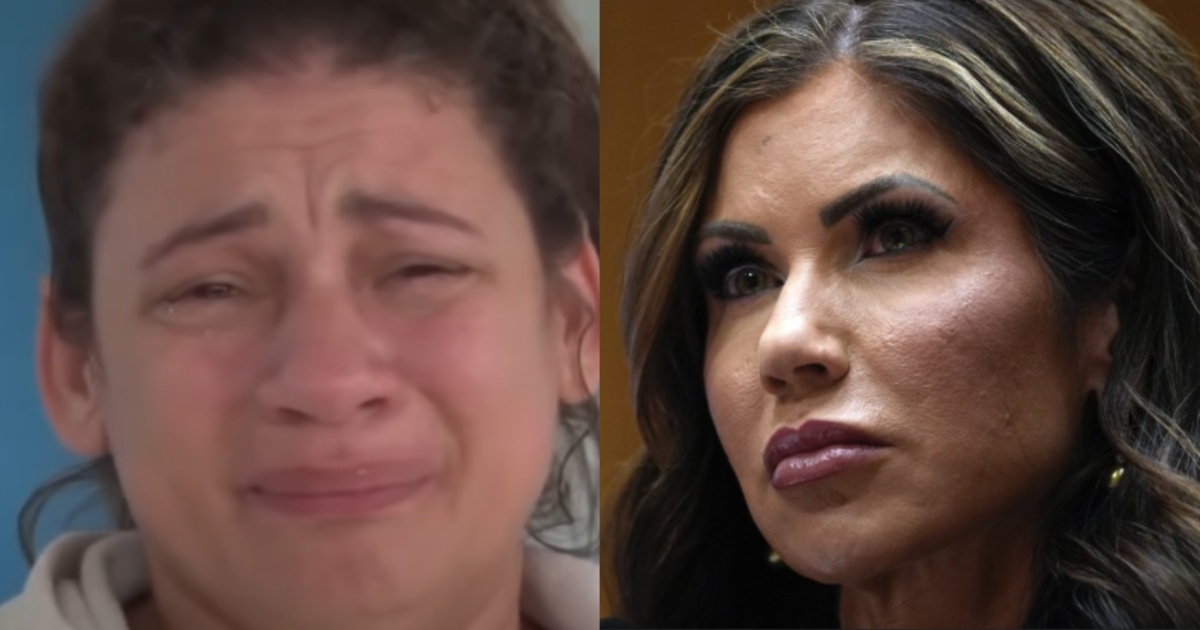Inside the threadbare Terminal Five at Havana’s José Martí International Airport, a Cuban mother stepped off a U.S. deportation flight and broke down in tears. “They left behind my two-year-old daughter. I lost her,” sobbed Yudierquis Reyes Merino, saying officials told her the little girl is American and couldn’t leave the country.
Reyes says she was picked up in June at a routine ICE check-in in Nebraska, where she’d been cleaning offices and meatpacking plants. After weeks in detention, she agreed to return to Cuba only if she could bring her toddler, but says agents put her on the plane without the child. The flight was one of the monthly returns now funneling deportees through Terminal Five for quick reprocessing by Cuban authorities.
For decades Cubans arriving in the US were considered refugees fleeing communism.
As Trump ramps up his immigration crackdown, CNN gets a first look at Cuban deportees as they return to their homeland in shackles.@CNN_Oppmann reports from Havana
👉 https://t.co/lAt4I3JByn pic.twitter.com/XmqSsbxzmj
— CNN International PR (@cnnipr) September 2, 2025
In an emailed statement, a Department of Homeland Security official labeled Reyes a “criminal illegal alien” and “child abuser,” claiming she crossed near Eagle Pass, Texas, in 2022 and had been charged with child abuse, second-degree domestic assault, and using a deadly weapon. But a review of Nebraska court records found no child-abuse conviction; prosecutors dropped an “intentional child abuse, no injury” charge after Reyes pleaded no contest to second-degree assault in 2023 and received probation.
DHS also asserted that the child’s father, described as a U.S. citizen in the email, asked that the girl remain with him in America. He later said he’s a U.S. resident, not a citizen, and explained that he lacks legal custody but urged that his daughter stay in the U.S. because “life would be too hard for her” in Cuba. The mismatch between the agency’s statement and the father’s account has inflamed criticism that rapid deportations are tearing families apart without clear, consistent safeguards for U.S.-born kids.
ICE has arrested and incarcerated and is trying to deport a Cuban legal immigrant who is a political dissident who entered legally, is here legally, who has committed no crimes and is married to a US citizen WITHOUT DUE PROCESS https://t.co/ztrVASYE1k pic.twitter.com/jOV7N1JYwN
— David J. Bier (@David_J_Bier) August 1, 2025
Reyes’s removal arrived amid a larger ramp-up. A recent deportation flight carried 161 Cubans, the largest single-plane return to date, as the administration hardens its approach to Cuban migrants who entered during the prior parole boom. Reporters who were allowed onto the Havana tarmac described deportees stepping off with shackles just removed, some dazed after long stints in U.S. detention.
Local coverage in South Florida and Cuban outlets have documented similar scenes, with returnees recounting months in detention and separations from American-born children. One broadcast from Miami featured deportees describing handcuffs on board and the shock of being told their U.S.-citizen kids could not accompany them on removal flights, underscoring how the policy shift is rippling through families on both sides of the Florida Straits.
Over 150 people were deported from the United States to Cuba on August 28. The eighth deportation flight this year. Cuba has honored its bilateral agreement with the U.S. despite the Trump administration’s hostile policy toward the island. pic.twitter.com/8ftlsF3Cm6
— Belly of the Beast (@bellybeastcuba) August 29, 2025
Cuban officials insist they process their citizens quickly upon arrival, but the human fallout is unmistakable. Reyes told reporters she sold her home to finance the journey north and now must lean on relatives while trying to video chat with a toddler who doesn’t recognize her mother’s voice on the screen. She also said she would risk the perilous trek again if that’s what it takes to reunite.
For now, the fate of the two-year-old rests in a bureaucratic gray zone that straddles immigration enforcement and family law. Reyes maintains she never meant to leave her child behind, DHS says the father wanted the girl to remain, and both parents say they want what’s best for her.
What’s clear is the image from Terminal Five, where a mother stepped into a sweltering arrivals hall without her daughter, captures the raw cost of a crackdown measured not only in flights and case files, but in the sound of a parent sobbing for a child she cannot hold.









